 This post is a tad late, as it was supposed to be done by the end of May … which has obviously come and gone, so I do apologise. But thanks to no internet on at home (which is when I get much of my blog posts written) thanks to recent storm damage, it has put a halt to that until our cable gets fixed.
This post is a tad late, as it was supposed to be done by the end of May … which has obviously come and gone, so I do apologise. But thanks to no internet on at home (which is when I get much of my blog posts written) thanks to recent storm damage, it has put a halt to that until our cable gets fixed.
There’s so many good ones out there that I can’t share them all, but here are just some of those I’ve really enjoyed reading over the past month of or so. This time we have everything from why you should blog to find your ancestors, to lessons Gen Y can teach you, to how to organise your genealogy, and even one on etiquette. So quite a range!
I know that I’ve mentioned before that I find that reading blog posts helps me keep up with the latest news, products as well as what’s happening in general in the world of genealogy. And if you happen to already follow me on Twitter, and to some extent Google+, you already know that I like to share with you the interesting things I read.
Anyway I hope you find the following Genealogy Blogs … useful, and well, inspiring.
Comparing the search engines: FamilySearch, Ancestry and MyHeritage
Ever wondered just how different the searching on the various big name genie website are? James Tanner did. And as FamilySearch, Ancesty.com and MyHeritage all now list the US Censuses, he decided that it would be good to use that as a base to test the searching of each, and has come up with some surprising results. Read the full story …
FamilySearch.org — The First Two Weeks of the New Website Design
FamilySearch underwent a big makeover around late April. In this post, James Tanner takes us through how he’s found the redesign after two weeks … the good and the bad. Read the full story …
My Brick Wall Solution
Jenny was recently inspired by James Tanner’s recent posts about Brick Walls (lets face it, who isn’t inspired by his posts!), and she thought she’d put write about her methods for attacking those brick walls. Read the full story …
10 Reasons to Blog About Your Ancestors
Have you thought about starting a family history blog, but you’re just not quite sure how to go about it? Well, Terri doesn’t go into that detail here, but she does give you a heap of reasons on why you should start. Read the full story …
Tips for getting — and keeping — your genealogy organized
Now organisation (or the US version or it – organization) is something that the earlier you start it, the better. But for so many the problem is not ‘knowing’ that you need to be organised, but rather the ‘how to’ get organised. Think about it this way – the hours you take looking through the records you already have, is time that you could be spending on looking for new stuff! While there is no ‘right’ way to organise your genealogy, as it is what is going to work for you, Barry Ewell share his organisation methods with us. Read the full story …
The Best and the Worst of Genealogy Home Offices
I think we all dream of having our own space, our own office where we can store all of our genealogy, and leave it out so we know where we were, rather than having to pack it up to set the table for tea. Well, have a read of Scott Phillips’ Pros & Cons of home offices. Read the full story …
Have You Really Looked Everywhere?
I had to read this one simply because of the title – it’s one that I’m sure we’ve all thought of at times, and one that I do hear a lot from customers who visit our shop. I then suggest that that they’ve simply “looked everywhere they know of”, which can be quite different. Read the full story …
Remembering Grandma: Sharing Stories of Your Female Ancestors
As genealogists and family historians, we want to share our family’s stories. We learn about amazing individuals through our research, yet so many times our immediate family may don’t want to hear the details of a census record or a county history we just discovered, but she reminds us that there are other ways that we can connect with the non-genealogist in the family by sharing the story of an ancestors.
In this post Stephanie focuses on female ancestors, and says that stories about Mum and Grandma evoke childhood memories in an instant, and heritage crafts are a wonderful way to accomplish this. By highlighting the story of Mum, Grandma Wilson, and Aunt Beatrice, you are connecting your family in the present to relatives from the past. Let’s look at some ways that will make even the non-genealogist interested in their stories! Read the full story …
The Cost of Historical Research: Why Archives Need to Move With the Times
As county and smaller archives face continued financial pressure on their services, history researchers are facing increasing difficulty in accessing original archival documents. Reduced and often complex opening arrangements, fewer staff and closures over lunch periods makes pre-planning an inevitable part of the archival research process. Archives appear to be using fees to plug gaps in their finances, some of which are at ridiculous rates. This story is from the UK, but it is happening right around the world, so others need to be aware. Read the full story …
What is the Future of Genealogy Conferences?
In this post James Tanner poses the question “what is the future of genealogy conferences?” While there still seem to many scheduled, often numbers are down. Yet the groups who offer find that physical numbers of attendees are down, but those attending virtually are up … Is this a sign of the times that organizers need to cater for ? Read the full story …
The Future of Genealogical Software
“First off, I think the concept of an isolated, unconnected “desktop” computer is very close to dead” that’s how James Tanner starts of this post. Read the full story …
Social Media Etiquette 101: Attribution
This post isn’t specifically about genealogy, but as social media plays such an important role in all of our lives it is important to remember … Etiquette. There was a time when people simply grew up knowing about etiquette. Back in our parents or grandparents day, they learned how to behave and be courteous to others, sadly much of these traits have been lost over the passing generations. Author of this post Chris Syme, tells us that we are in desperate need of an etiquette manual for the internet. And as attribution is an important part of etiquette, giving a ‘little nod online’ acknowledging where you found some information is part of it. Read the full story …
Who do you look like? DNA and Family Resemblance Across Generations
In this article, Lee Rimmer reminds us of the wonder of how DNA can program people’s faces to resemble others sharing genetic kinship. Resemblance is the basis of our perception of race and ethnicity. It is also a favourite topic of conversation at family gatherings. With interesting stats, and plenty of pictures, it is a fascinating read. Read the full story …
Gen Y: The Top Lessons Learned from Genealogy
Gen Y – the 20 to 30 somethings are gravitating towards family history through the increasing amount of access to online records. And while family history is traditionally associated with our parents and grandparents who spend hours scrolling through microfilms and dusty books (which are still useful), but through digitisation, genealogy TV shows, and the development of online services, millions of people, younger people, now have an easier way to access their family history. This tech savvy generation are the next genealogists, and they have raised the bar and challenged companies to constantly improve and innovate. Who better to know about what Gen Y wants, findmypast’s D. Joshua Taylor – himself, not even 30. Read the full story …


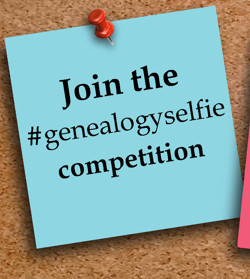


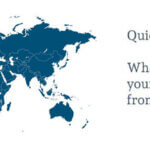

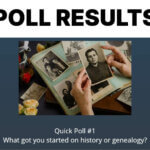
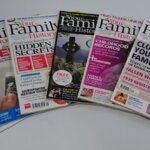
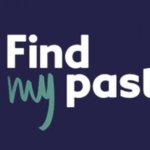
Thank you so much for the shout out to Finding Our Ancestors. I really appreciate it.
Terri
My pleasure! Thanks for the post 😉